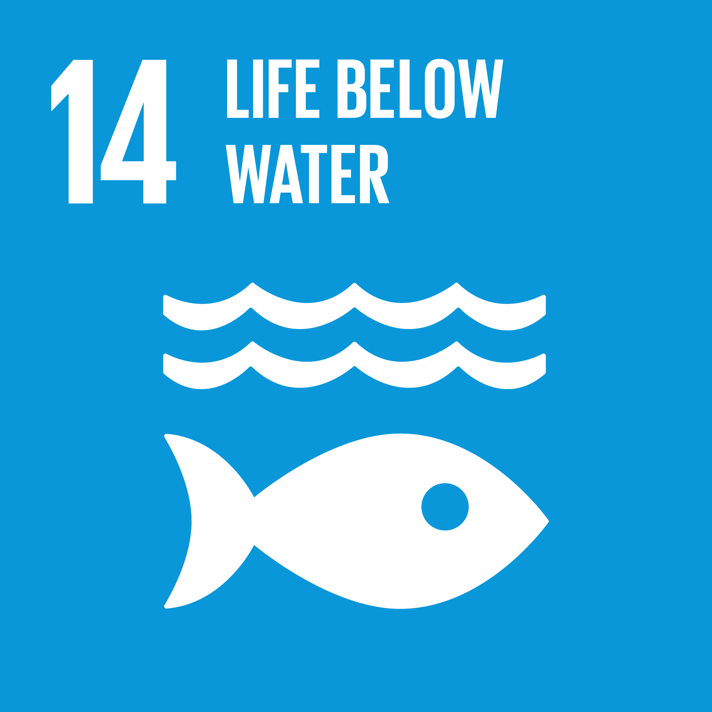Goal 14: Life below water
Published
Goal 14 is to conserve and sustainably use the oceans, seas and marine resources for sustainable development.

Many of the oceans' fish stocks are overexploited and global action is therefore needed to adopt measures that promote restoration of the threatened stocks. To ensure fish stocks that are sustainable in the long term, fishing should be based on achieving the maximum sustainable yield and account taken of special conditions in specific regions and ocean areas. Growth based on marine resources shows the inherent potential of oceans for global development, including poverty reduction. In this regard, aquaculture plays a key role and is one component in ensuring food security, provided that this is done in a sustainable manner.
It is important to continue developing measures and management tools to be able to manage known influencing factors such as pollution, overfishing and the extraction of natural resources. Protection and restoration of coastal and marine areas are key measures to preserve biodiversity and fishery resources, and also to strengthen resilience to climate change. Additional new challenges for ensuring marine production of food are marine debris including microplastics, and in particular ocean acidification, which shows the importance of linking marine issues with climate change action.
Targets
14.1 By 2025, prevent and significantly reduce marine pollution of all kinds, in particular from land-based activities, including marine debris and nutrient pollution
14.2 By 2020, sustainably manage and protect marine and coastal ecosystems to avoid significant adverse impacts, including by strengthening their resilience, and take action for their restoration in order to achieve healthy and productive oceans
14.3 Minimize and address the impacts of ocean acidification, including through enhanced scientific cooperation at all levels
14.4 By 2020, effectively regulate harvesting and end overfishing, illegal, unreported and unregulated fishing and destructive fishing practices and implement science-based management plans, in order to restore fish stocks in the shortest time feasible, at least to levels that can produce maximum sustainable yield as determined by their biological characteristics
14.5 By 2020, conserve at least 10 per cent of coastal and marine areas, consistent with national and international law and based on the best available scientific information
14.6 By 2020, prohibit certain forms of fisheries subsidies which contribute to overcapacity and overfishing, eliminate subsidies that contribute to illegal, unreported and unregulated fishing and refrain from introducing new such subsidies, recognizing that appropriate and effective special and differential treatment for developing and least developed countries should be an integral part of the World Trade Organization fisheries subsidies negotiation
14.7 By 2030, increase the economic benefits to small island developing States and least developed countries from the sustainable use of marine resources, including through sustainable management of fisheries, aquaculture and tourism
14.a Increase scientific knowledge, develop research capacity and transfer marine technology, taking into account the Intergovernmental Oceanographic Commission Criteria and Guidelines on the Transfer of Marine Technology, in order to improve ocean health and to enhance the contribution of marine biodiversity to the development of developing countries, in particular small island developing States and least developed countries
14.b Provide access for small-scale artisanal fishers to marine resources and markets
14.c Enhance the conservation and sustainable use of oceans and their resources by implementing international law as reflected in the United Nations Convention on the Law of the Sea, which provides the legal framework for the conservation and sustainable use of oceans and their resources, as recalled in paragraph 158 of "The future we want"

 X
X